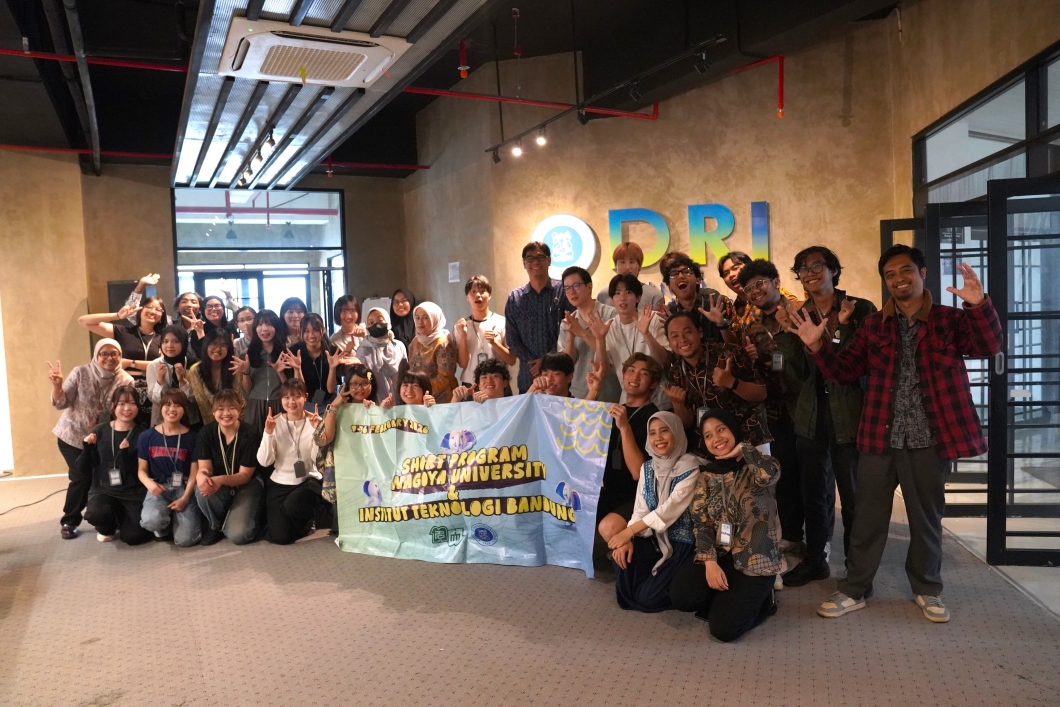ITB Physics Study Program Webinar Introduces Job Prospects in New and Renewable Energy
By M. Naufal Hafizh, S.S.
Editor M. Naufal Hafizh, S.S.

BANDUNG, itb.ac.id — The Physics Study Program, Faculty of Mathematics and Natural Sciences (FMNS) Institut Teknologi Bandung (ITB), held a professional webinar called “Reactor”, a Roadmap to Exploring Advanced Career Tracks in Physics on Saturday, February 17, 2024.
This webinar introduced the career field of new and renewable energy (NRE) for undergraduates in physics, featuring the founder and CEO of PT Batara Energi Indonesia, Ilham Rizqi Sasmita.
Ilham, an alumnus of ITB Physics, explained that career opportunities in NRE were vast. This was inseparable from the energy transition agenda that was incentivized up to the international level.
The trend of transitioning from fossil energy to NRE was a direct response to global warming, which had accelerated in recent decades. This transition was significant because the use of fossil energy had been proven to be the main source of greenhouse gas emissions, accounting for 62% of the total greenhouse gas emissions in the atmosphere. When examined by industry factor, the energy industry represented the highest greenhouse gas emissions at over 73%.

“The energy industry produces the most greenhouse gasses. It uses coal, it uses diesel, and it’s often done unwisely,” he revealed.
Greenhouse gas emissions globally have risen from year to year, except in 2020 due to the Covid-19 pandemic. The resulting global warming created a new problem that devastated many parts of the world: climate change. As a consequence, countries around the world—Indonesia included—had to start efforts to mitigate climate change, one was the transition of energy to NRE.
According to Ilham, the use of NRE offered multiple advantages, such as being cleaner and more environmentally friendly, having decentralized production processes, promoting technological development, and creating new jobs—green jobs.
To date, there are numerous NRE sources that have been developed, namely water, wave, tide, sun, biomass, geothermal, and wind.
In Indonesia, the potential of NRE is substantial and comes from various sources across the entire country, allowing promising development opportunities.

“Currently we are only using 0.3% of the total available potential, so there’s much room for improvement especially when considering environmental issues, climate change, and increased electricity usage per capita,” he explained.
The vast potential of NRE, which is not yet aligned with maximum utilization, provides lucrative opportunities in the sector. Industries that are already established usually only focus on one specialization of NRE, namely generation, storage, transmission, or distribution. The wide landscape of industries offers a variety of agencies, ranging from manufacturers, developers, state-owned enterprises (SOEs), international organizations, to think tanks. Ilham described several examples of job opportunities that physics undergraduates could take in NRE, such as engineers; health, safety, and environment (HSE) officers; consultants; project management; and business development.
“Nowadays there are a lot of employees sought after in NRE to take on green jobs, especially those with a bachelor’s degree. So, it doesn’t have to be a master’s degree,” mentioned Ilham.
Reporter: Hanifa Juliana (Urban and Regional Planning ‘20)
Translator: Ariq Ramadhan Teruna (Chemical Engineering ‘21)
Editor: Ayesha Lativa Mafaza (Postharvest Technology ‘21)




.jpg)
.jpg)

